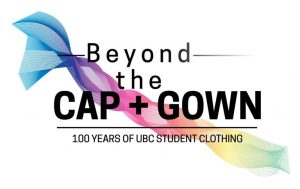As teaching librarians, we introduce our students to knowledge organization structures that enable inquiry and curiosity in the library, but also use language and logic that we might otherwise contest. Students researching gender and sexual identities in our library catalogs, for example, must confront a controlled vocabulary that represents bias against them more than it does the reality of their own lives. These are pivotal moments, where students intersect with structures of power. Librarians engaged in critical work against dominant knowledge formations can both help students perceive the structures of power that enable some ways of knowing and not others, and help them understand those structures as subject to change. We can begin by understanding how librarians are produced in part by intersections with structures of power.
The Workshop for Instruction in Library Use (WILU) is Canada’s only conference devoted to library instruction, information literacy, and information fluency. Sessions explore both research-based and applied subject matter, and are attended by librarians from Canada, the United States, and beyond with a variety of teaching and learning interests. It is notable that WILU is not affiliated with any association or organizing body – instead, since its inception in 1972, it has been sustained and passed on from year to year through the collaborative efforts of hosting institutions.
Select Articles and Books Available at UBC Library
Accardi, M. T., Drabinski, E., & Kumbier, A. (2010). Critical library instruction: Theories and methods. Duluth, Minn: Library Juice Press. [Available at Irving K. Barber Learning Centre – Z711.25.C65 C75 2010]
Drabinski, E. (2012). Forum:Radical teacheras an online and open access journal. The Radical Teacher, (94), 3-13. doi:10.5406/radicalteacher.94.0003 [Link]
Drabinski, E. (2013). Queering the catalog: Queer theory and the politics of correction. The Library Quarterly: Information, Community, Policy, 83(2), 94-111. doi:10.1086/669547 [Link]
Drabinski, E. (2014). Toward a kairos of library instruction. Journal of Academic Librarianship, 40(5), 480-485. doi:10.1016/j.acalib.2014.06.002 [Link]
Drabinski, E. (2016). Valuing professionalism: Discourse as professional practice. Library Trends, 64(3), 604-614. [Link]
Langholt, J. (2012). Critical library instruction: Theories and methods. edited by maria T. accardi, emily drabinski, and alana kumbier. duluth, MN: Library juice press, 2010. pp. xvi+341. ISBN 978–1-936117-01-7. The Library Quarterly, 82(1), 93-96. doi:10.1086/662949 [Link]
UBC Library Research Guides
